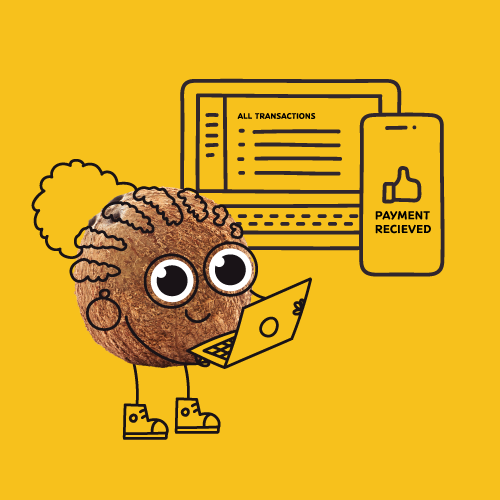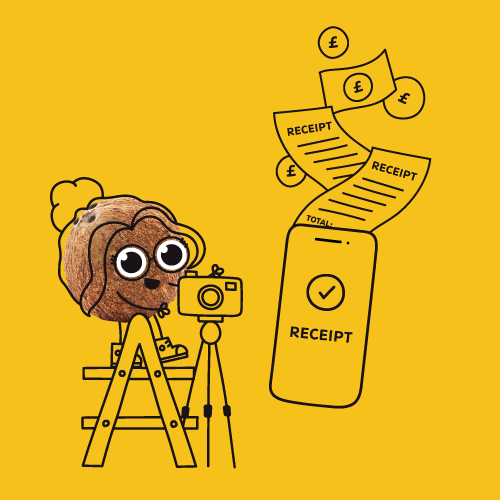And, they give us a great insight into how you work out your tax, if it stresses you out — and if you have enough confidence in your figures to know how much you can invest back into your business.
For many, being responsible for tax is one of the things about setting up your own business that’s most likely to make you sit bolt upright at 4 am in a cold sweat 😰. If you’ve been salaried up until this point, then it can seem an alarming change; one that’s bound to take up a lot of time and could be stressful.
Right now, Coconut can support your business as we estimate the amount you need to put aside for tax, as you go along, based on how much you earn (your income) and how much you spend (your expenses). Still, we wanted to see what more we could do – and the starting point for that was to find out some more about how you’re currently managing tax.
This is where the Saving for Tax survey comes in.
Sent to a sample of 500 self-employed people with questions covering the practical (how they do their tax, are they getting it right) and also the emotional/stressful aspects of being responsible for tax.
We’ve pulled out some of the key things in this infographic:

Saving for Tax highlights:
- Three in ten find tax the most complex part of running their business
- 27% say they either under or overestimate how much they owe
- For those who overestimate, then it’s for about £722 a year
- Only 18% of the business owners who took part are currently using digital accounting tools
There were also plenty of positive takeaways for the self-employed community. While three in ten of you say you find tax the most complex part of running your business, it’s also true that 37% of you don’t worry about doing your tax and 42% feel in control thinking about it. Maybe we shouldn’t have been surprised. After all, if you’ve taken the leap to run a business in the first place then you will get to grips with it.
However, what really stood out is how many people are overestimating their tax – and by just how much. Also, by how few people are using digital accounting tools.
This is where we think we could help.
Accurate tax figures – together with a process that automatically saves the right amount as you earn – liberates you from having to err on the side of caution. And this means you’ve got more to put back into your business. Over time, this could make a significant difference. And, that’s where Coconut comes in.
Coconut already provides an on-going estimate of tax owed and now, with our new tax-saving tool, VaultAgent, we’ll also help you set money aside for tax every time you get paid.
We want this to give you the confidence you need to invest in the development of your business without the nagging worry that you should “put a bit more aside for tax”.
Want to find out more about Saving for Tax with Coconut? Make sure you’re first in line to know when we go live by joining the waitlist.











